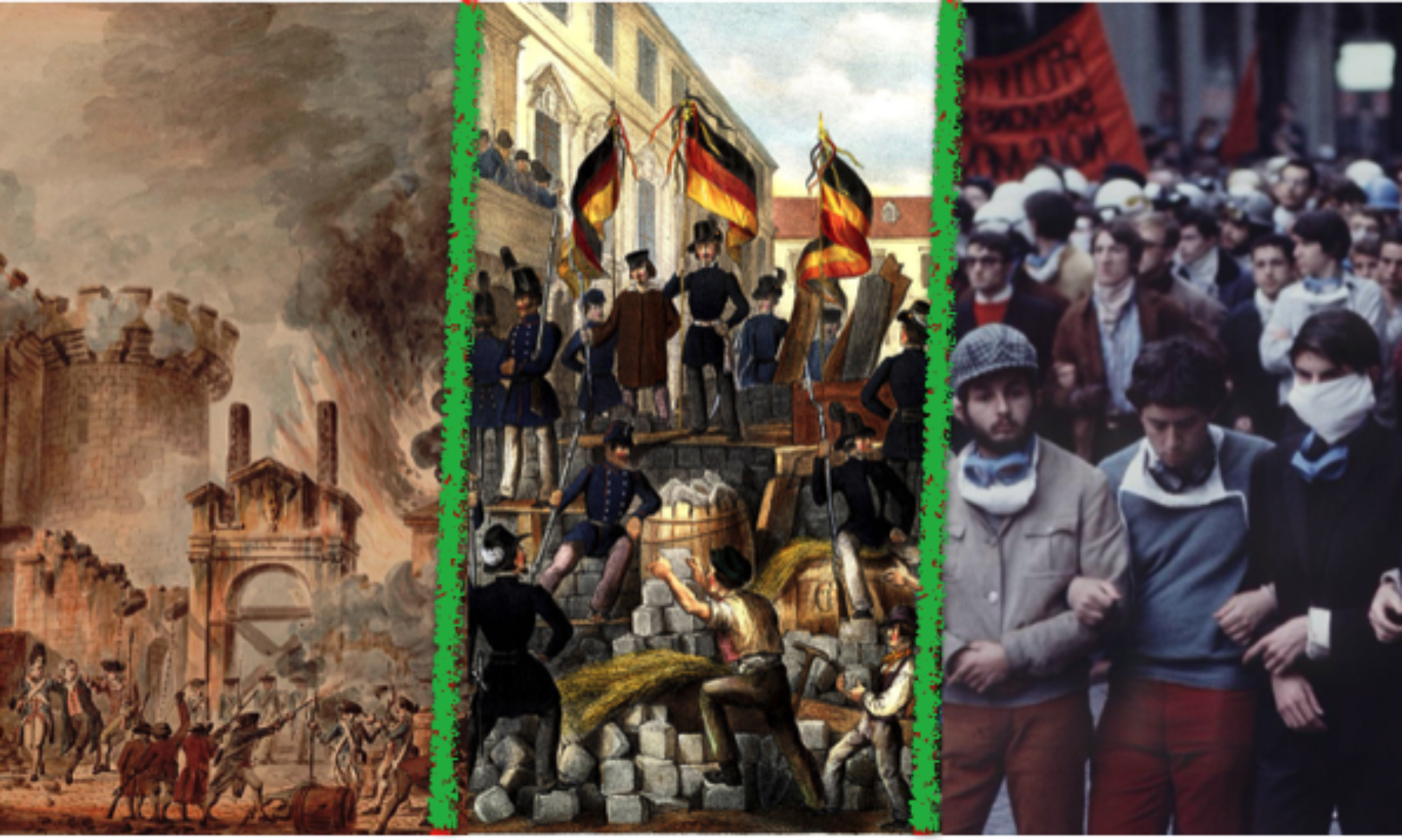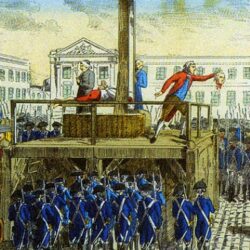For class on Tuesday we had to analyze and divulge the primary source document titled “The Workers’ Union” written by Flora Tristan. Flora Tristan was an early socialist feminist in the 1840s. One of the ways that she preached political activism was the use of the Workers’ Union. One of the issues that Tristan touched on was the miserable and terrible conditions that have been put in place in society for the workers. Tristan also touches on the rights that workers do not have so much so that they do not even have the right to beg. My question that I would like to propose for discussion, is given the success that could come from the Workers’ Union, what could be a reason that workers may question joining in unity? What could be consequences of doing so?
Massimino Blog Post for 9/29
Upon reading Flora Tristan’s “The Worker’s Union” I was struck by how forward thinking her ideas were at the time. Describing the modern day workers’ unions that exist day, she stresses the importance of committing oneself to the collective in order to help the greater good. However, I worry about her oversimplification of the subject and harsh criticism of the worker. Near the beginning she stresses the need for unity, reminding everyone of how they have waited 25 years to be met with nothing (190). She insists they must protect themselves, which is true, but doesn’t seem to focus much on what they must protect themselves from. She hints at social contract being broken, yet doesn’t agree that the working class has earned the right to revolt. Do we think this is poor oversight of the situation or does she understand that the State is too powerful to go against?
Can it work?
This is not my first rodeo with the Communist manifesto, but one thing always comes to mind: Can it work? Chapter IV ends optimistically with “They openly declare that their ends can be attained only by the forcible overthrow of all existing social conditions. Let the ruling classes tremble at a Communistic revolution. The proletarians have nothing to lose but their chains. They have a world to win.” We could probably spend the rest of the semester talking about communism, but I think it boils down to ideas that might be too extreme for most of Europe. The ruthless class systems in the countries mentioned in the Manifesto were not created overnight. These are hierarchies that were built over many many years. Reforming them is quite a difficult task. What is the tipping point or issue that can spark a revolution of the sort the Manifesto is calling for? I know the question may seem simple, but I am curious what everyone else thinks about this.
Conflict in the Countryside
For the reading for class today, we began to analyze the social conflict that began to occur pre-1848 in Europe. One of the first social conflicts that began to come into question was the conflict that was arising in the countryside. One of the main issues that arose from this social conflict was the definition of “private property”. For most of the French Revolution and pre-1848, there was no clear cut definition, after all many farmers would grow crops and pasture animals on the property of others. Yet what caught my attention in this conflict is the role that economic growth played on it. Economic growth during this time arose from a result of population growth which in turn put a strain on a lot of the supplies that farmers were producing (such as wood, wool, etc). It is this sudden boom in the economy in Europe that also brought into question the exploitation of usage rights. The question I wanted to propose for discussion for class is how is the exploitation of usage rights in Germany, Austria, and France comparable? And were the lawsuits that farmers brought onto their respective governments effective?
Conflicts to the State
In our reading for today, Sperber says that “the government’s sphere of activity in the first decades of the nineteenth century was relatively limited, thus restricting the range of possible confrontations between the state and its subjects” (p 47). I really do not know if I am sold on this idea that increased government involvement led to friction with the masses. Was government that much more involved in 1848 compared to earlier in the century in places outside of France? I picked out this topic t because I really think it is worth a few moments of our time to discuss how this plays into the bigger picture of why revolutions happen.
The Second Coming of the Revolution
In The French Revolution Revisited, Furet draws a parallel between the Jacobin led French Revolution and the Bolshevik led Russian Revolution over 200 years later. He quotes historian Albert Mathiez in saying, “Jacobinism and Bolshevism are two dictatorships born of civil war and of war, two class dictatorships operating through the same means: terror, requisitioning and taxes; and having, in the last resort, the same goal: the transformation of society and not only of the Russian or French society, but of the universal society,” (269). If Mathiez’ assessment is to be taken as correct, where do we see the echoes of the French Revolution in the Russian Revolution? Where might we find ideas that contradict the French Revolution that may disprove his statement?
Remember to Vote!!!
The election is on November 3, and it is vitally important that you make your voice heard! If you plan to vote in Pennsylvania, you must register by Oct. 19. You can do so here. If you will vote in another state, please check the registration deadline. Voters get extra credit! Send me a picture of yourself outside your polling place or at home with your sealed mail-in ballot.
“The Price of Liberty: Victor Hughes and the administration of freedom in Guadeloupe, 1794-1798”
In this reading for today, we had to read and analyze a document written by Laurent Dubois that analyze the price of liberty during the French Revolution. One of the aspects of the French Revolution that Dubois analyzed that caught my attention was the issue of the “active” vs “passive” citizen. Dubois described a passive citizen as one who is protected under the laws but is not qualified to vote while an active citizen can participate in the entire voting process and be elected as well. It was interesting to me how during the French Revolution there was a divide for what defined a citizen. It is this division that also to me shows how there was a divide as a nation in France. My question is, can a nation truly be considered one if there is active vs passive citizens?
Massimino 9/15 Law of April 4th
The language of this decree is amusing to me. It seems that they were suggesting that a revolt over slavery a “minor disagreement,” and that they were taking the situation out of proportion. Evidently I disagree, I think it is exactly the actions of the rebels that got this decree made. What do you guys think? Or furthermore, is this an attempt to maintain a sense of legitimacy (as in the revolt had already decided that slaves were free, but France wanted to say it so they could act like it was the decision of the nation)
The Many, Many Ways of Not Giving People Freedom
Throughout the Dubois article, there is a lengthy discussion on the various ways the ruling elite thought about emancipating the slaves in the colonies. Some of these ideas included gradual emancipation based on age and “freeing” oneself by working for payment on their own time: “a process of gradual self-purchase, where the slaves, using money they made during their one [emphasis added by me] free day of the week, could buy additional days of freedom from their masters until they were entirely free (270). All of these discussions are predicated on the idea that a formerly enslaved human could not understand the significance of being an active member of society. To me, this arguments seem to be focused on maintaining white economic superiority within the French Empire and not at all to do with actual human right issues the revolution is attempting to address. In fact, I think Dubois feels this way with the incorporation of the Sieyes paragraph on page 259. What are your thoughts on the many painfully arrogant ways these French men though about emancipation within an empire?

